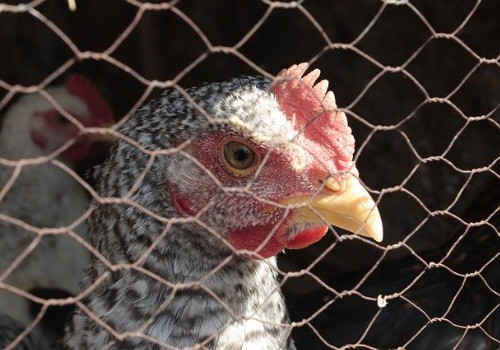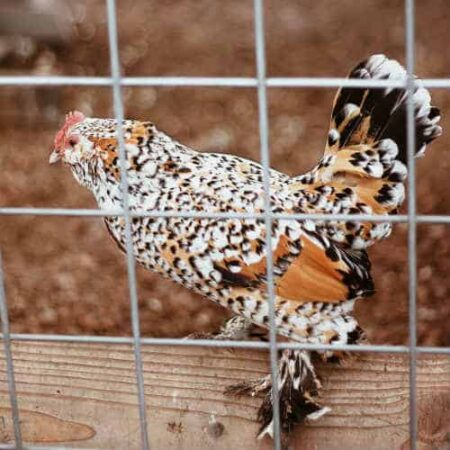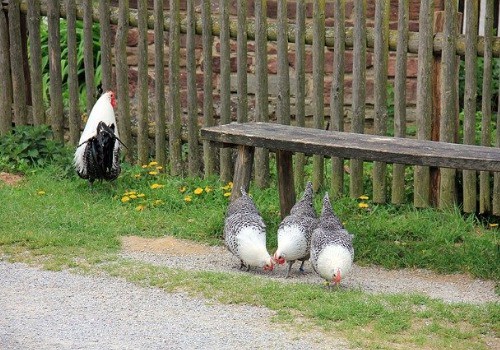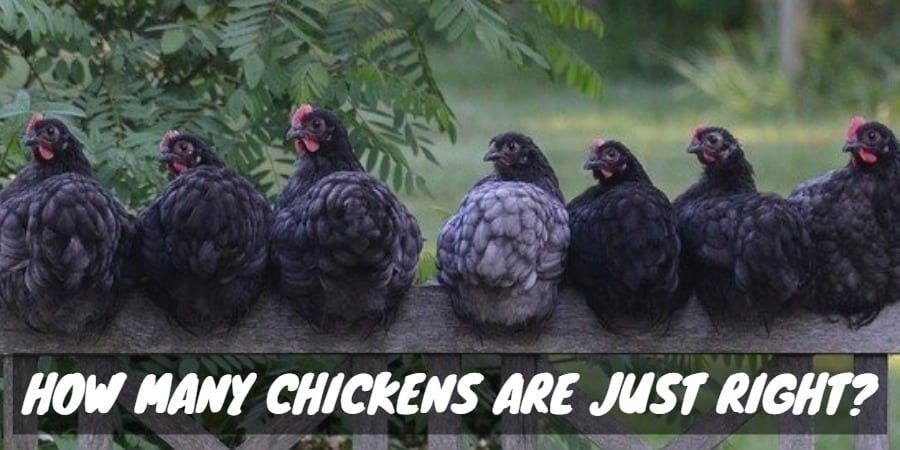The easiest way to keep chickens out of your yard or garden is to fence them out. Chickens are poor flyers, and most cannot easily clear 6′ fence. Alternatively, you can keep your chickens corralled in a covered and fenced-in chicken run that will keep them confined only to the part of the yard you’d like them to have access to.
Part of chicken ownership is learning to share space with your birds. Identifying what areas of your home are bird-free zones and planning accordingly is important for protecting your yard, garden and landscaping. Allowed to roam freely, chickens will have no problem destroying your flower beds and vegetables.

Free-Ranging Chickens Can Destroy Your Garden
Chickens are omnivorous foragers by nature. This means that they will eat nearly anything, including the vegetables in your garden. A flock of hens may peck at your tomatoes, break stalks of corn, tear your lettuce and otherwise make a mess of the garden.
They can also be a menace to flower beds and ornamental plants. In addition to nibbling at the plants themselves, chickens can dig up the soil and make a mess of the mulch. Chickens dig and scratch at the dirt looking for things to eat and as an instinctive habit, and this behavior can wreck your landscaping.
With this in mind, it’s important to decide what areas of the yard will be off-limits to chickens. Modifying chicken behavior is very difficult. You’ll have much better luck with changing the environment than stopping a chicken from doing what she wants to do.
Instead of worrying too much about how to keep chickens out of your flower beds, think instead about what areas of the yard would be chicken-friendly. Would it be easier to free-range your chickens through most of your yard and only fence off the forbidden areas? Or would it be simpler to fence the chickens in to their own designated space and leave the rest of the yard open? Consider your specific situation and needs, then plan accordingly.
[amazon bestseller=”chicken 1/4inch Hardware Cloth Welded”]
Keeping Chickens out of Your Garden

There are many suggestions and tactics for how to repel chickens, but most are more myth than fact. Below are some of the many techniques you may run across or hear suggested:
- Repelling the chickens with strong scents from vinegar, spice powders or citrus peels
- Planting perennial herbs like lavender, mint or chamomile to serve as a barrier
- Spreading out rubber snakes or other fake predators to frighten the birds
- Laying out stakes or skewers that will poke invading birds
These techniques can work, but they tend to be hit-or-miss. Every chicken will have her own individual preferences and habits, so there is no guarantee that every bird will be repelled by the same things. A physical barrier is more reliable than anything that relies on chicken psychology.
Because chickens are poor flyers, a 4′ fence may be enough to keep most birds out of your garden. A taller fence around the garden may be necessary if you have smaller, more agile birds. As an added benefit, fencing in your garden can protect it from other wandering pests like rabbits or deer.
If you don’t want to fence in your garden, an alternative may be to plant in raised beds. A raised bed at waist height may be enough to repel most chickens as they won’t want to put in the effort to fly up to investigate. However, this plan is not foolproof as a motivated, bored or hungry chicken can still fly up to damage whatever you have planted.
Keeping Chickens Contained

If you have a lot of flower beds and landscaping, or if you simply don’t want your chickens roaming freely around your yard, keeping them contained to their own yard is a good solution. An enclosed chicken run also protects the birds from predators like cats, foxes and hawks.
For maximum protection, you’ll want to give your chickens a fully secure area with a roof. Chicken wire or wire mesh makes a perfect roof for an enclosed run. Be sure that the run attaches to the coop so the chickens can move freely between the indoor and outdoor areas.
Chickens require 10 square feet of roaming space per chicken. This means that a 5′ by 6′ space is big enough to accommodate three chickens. You can offer a larger area if you’d like in order to provide enrichment.
When fencing an enclosed chicken run, you’ll want to ensure it’s tall enough to enter without stooping. The chickens don’t need much vertical space, but crawling on your knees to catch a chicken is never a good time. Make the enclosure big enough that you can enter and easily catch a bird if necessary.
If you keep your chickens in an enclosed run, you’ll want to provide some scratch grains for the hens to forage through. This will provide enrichment and prevent boredom. You can also give your chickens some supervised free-ranging time in the rest of the yard. Just be prepared to shepherd them back inside when you’re finished.
How to Keep the Neighbor’s Chickens out of Your Yard
Waking up to find stray chickens in your yard or garden can be frustrating. A neighbor who doesn’t keep his birds contained can be a nuisance, and free-roaming chickens can leave behind unwanted gifts of poop, feathers, broken plants and dug-up mulch.
If your neighbor’s chickens escape into your yard frequently, you may need to have a frank conversation with the neighbor. If possible, write a polite letter requesting the birds be contained to the neighbor’s property. This way you have a documented paper trail in case you end up needing to involve the authorities later on.
You may also want to look into the rules and laws in your area. You can use these relevant ordinances to convince your neighbor to do a better job of keeping their chickens off of your property. For example, some areas may require backyard chickens to be contained rather than free-ranging, or chickens may not be legal in the area at all.
If your neighbor is difficult to deal with, you may need to involve animal control services or the local police. In the short-term, you can usually shoo away chickens with a water hose or sprinkler. Having a loud alarm linked to a motion-capture device may also frighten away wayward birds that venture into your yard.





Thank you for giving me this extremely useful knowledge